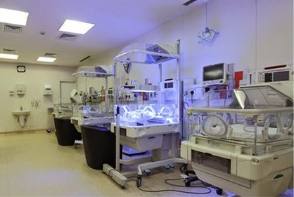The Tele-ICU-Nursing
Registered nurses require a set of critical care skills and knowledge that promote engagement and surveillance in operating the tele-ICU. Communication is key as tele-ICU nurses need to pass along critical information in regard to respective patients.
The nurses collaborate with doctors and other hospital departments to calmly pass vital data.
The nurses work beside the bedside ICU team and patients themselves, hence the need for effective collaboration skills. The process demands nurses to possess a quality decision-making process.

Nurses need to make fast decisions that require critical destabilization of patients. Besides, they need to consult other medical teams for quality service.
The nurses are required to have knowledge cutting across system thinking and computer know-how. Computer literacy enables them to examine, monitor and avail appropriate patient care.
The Tele-ICU Patient Education
Clinicians and nurses need to communicate to patients how the tele-ICU works. The patient and family members need to understand if the system will be centralized or decentralized. Nurses’ ought to prompt the clients on the advantages and demerits of using the tele-ICU. For instance, the patient should understand that they can communicate with their loved ones and see them from another room.
Patients have the right to accept or decline the option and it is the doctor’s responsibility to guide the client. Moreover, the patient can ask about their vital health conditions at any time and the medications ingested. The patient needs to understand the intensivists who are monitoring them and their level of experience.

The application of the system demands that the involved team consider the language and cultural background of the patient. It is crucial to factor in the patient with varying language barriers and cultural perspectives.
Comprehending the difference of cultural norms, values and beliefs provides room for assessing the words to use when communicating the symptoms and expectations. The patient background offers a different perspective on how they will describe their medical terms and personal medical background.
Remark
The tele-ICU model offers a viable and safe solution for the provision of high-quality care across communities. The systems provide reliable, cost-effective procedures in the long term and reduction in mortality rates.
The increased use, however, requires health personnel to consider patient informed consent, standard of care and reliability of the equipment used. Telemedicine is a new field that can be used to enhance ethical practices in health care delivery with minimal harm.
PHOTO CREDIT:GOOGLE.COM
WRITTEN BY: AMEDICC.COM
Thank you for your post. I really enjoyed reading it, especially because it addressed my issue. It helped me a lot and I hope it will also help others.
Can you write more about it? Your articles are always helpful to me. Thank you!